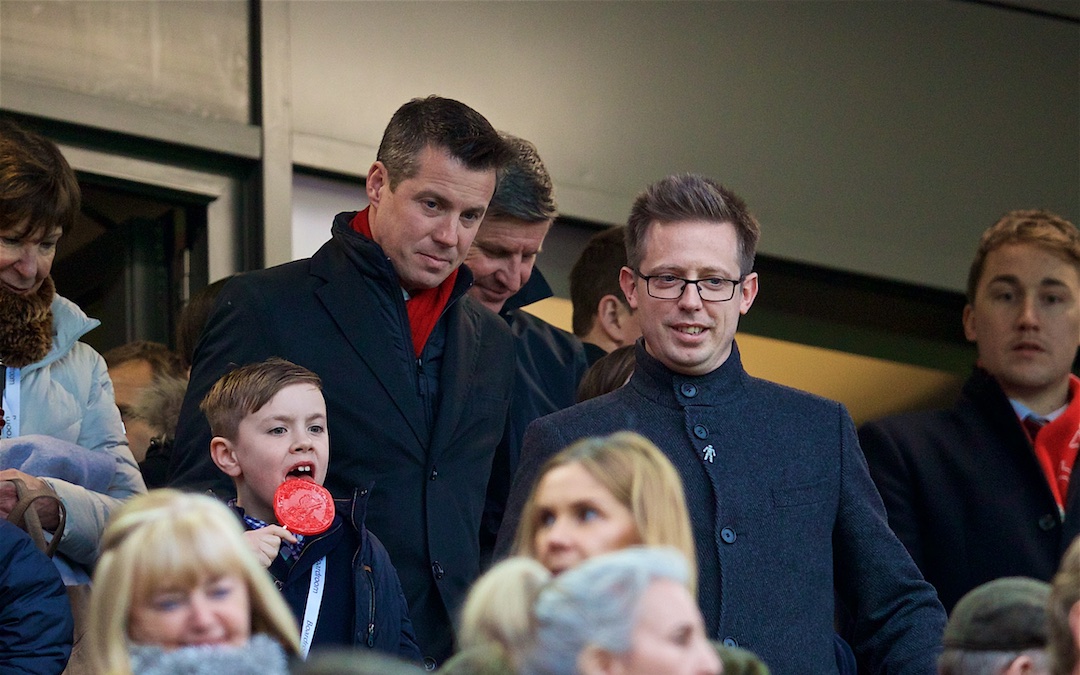Many of Liverpool’s successes have come under an individual leader approach – but is now the perfect time to believe in change?
“I had always planned to cap my time at the club to a maximum of 10 years. I’ve loved working here, but I am a big believer in change. I think it’s good for the individual and, in a work setting, good for the employer too.”
Michael Edwards’ open letter to Liverpool when he left his role in the summer of 2022 seemed pretty definitive at the time. Perhaps it’s why a lingering hope of a Jürgen Klopp u-turn clings on by a thread for so many. Words can be a foolish enterprise when it comes to forever.
Reading back, you pick up more detail than why his dog is called Bobby. Edwards strikes you as a man who values relationships. He would namecheck everyone who had helped him become one of the most notorious sporting directors in football, from Harry Redknapp to Danny Stanway.
It’s a subtle glance, a window ajar to peek into the mindset of a persona so aloof. Edwards was renowned for building trust and understanding with agents. This once again comes back to relationships. His one with Klopp is now the most contended. Storm in a staff-room. They were probably fine.
This week’s announcement of Edwards’ return signifies huge change. Not just in his role but to many others which now orbit around the current manager’s expanding influence since his departure.
A line which has been peddled out in The Gutter podcast was from a recent Athletic piece: “Edwards, in common with many within football, believes that positions like the one he has taken on are on a similar level in terms of importance to the role of manager or head coach and they should be remunerated accordingly.”
This is a topic of debate since Klopp announced his departure. The notion of totemic, messianic figures being solely responsible for a club’s success goes back to Bill Shankly. Believers in the individual leader approach also point to immediate downfalls of Manchester United and Arsenal post the Alex Ferguson and Arsene Wenger dynasties.
Edwards’ return touches on something central to Fenway Sports Group’s overarching approach of structural competence and shared responsibility. This was always their intention from the days of bouncing around Florida with Roberto Martinez and his I-pad. They firmly believe you need to be as exquisite with scouting as you do with tactics, for example.
The rehiring of a figure held in such high regard is a sign of this being set to return in droves. For this, you need egos to be relaxed and insecurities to be quelled. The most important person in this regard is the manager.
There’s this notion that you can’t replace Klopp’s character, his presence and, ironically, his energy. While this is undoubtedly true, perhaps someone coming in who veers away from such presence and influence is perfect for what Edwards will now build.
So the question remains what exactly is the role of the person leading the team? Is he Rafa Benitez in a tracksuit repeating a line about coaching his team? Is it the all-encompassing, fist-pumping Jürgen who literally has the freedom of the city?
Brendan Rodgers — operated at Liverpool on Edwards’ watch — couldn’t tame his own inner voice at times. This brought issues with transfer committees and murmurs of splintering.
None of this answers the question of whether one figure makes the club, or whether a football club is made up of multiple fractions of excellence across every department. The only thing we can seemingly do is enjoy the remaining time of one great man and all he’s given us.
We can be safe in the knowledge that Edwards’ penchant for structural excellence and his expanding relationships will benefit FSG and by virtue Liverpool Football Club. The future looks different and remains a daunting mystery in loads of ways.
But there’s a line about believing in change and it being good for everyone. Week’s like this make that concept more possible.











